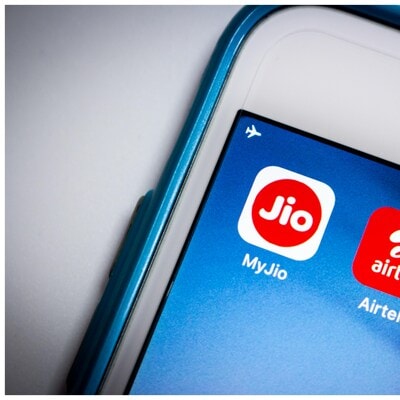Jio, Airtel 5G pricing surge: Consumers to spend Rs 47,500 cr more annually
Consumer spending on telecom services, including taxes, is set to surge by around Rs 47,500 crore annually, spurred by substantial tariff hikes from India’s leading telcos and elevated rates for users embracing 5G services, reported The Economic Times (ET).
Reliance Jio and Bharti Airtel have taken decisive measures to effectively monetise 5G, significantly raising costs for consumers seeking premium next-generation mobile broadband. Jio users now face a 46 per cent increase in the minimum charge for accessing 5G, while Airtel users encounter a steeper 71 per cent hike, sources told ET.
Both telecom giants have revised their entry-level pricing thresholds for 5G adoption. Jio’s minimum tariff for unlimited 5G data now starts at Rs 349 for a 2GB/day plan, up from Rs 239 for a 1.5 GB/day plan. Similarly, Airtel users must now opt for a Rs 409 plan (offering 2.5GB/day) instead of the previous Rs 239 plan (1.5 GB/day).
Analysts anticipate these price hikes will bolster Jio and Airtel’s Average Revenue Per User (ARPU) by 15-17 per cent. Citi Research projects Airtel’s ARPU to rise to Rs 235/270/305 by FY25/26/27, up from Rs 209 in Q4FY24, following the latest tariff adjustments. Goldman Sachs estimates Jio’s tariff revisions could lead to a 17 per cent increase in ARPU.
Last Friday, Bharti Airtel implemented tariff hikes ranging from 11 per cent to 21 per cent across its prepaid and postpaid platforms, swiftly followed by market leader Jio, which raised tariffs by 12 per cent to 25 per cent. Vodafone Idea (Vi) also joined the tariff adjustment wave, raising rates by 10 per cent to 23 per cent, expected to result in a 12-15 per cent ARPU rise for the company, despite lacking 5G services.
“Annual customer outgo on telecom services could potentially increase by Rs 47,500 crore after the tariff hikes, and with Jio restricting unlimited 5G data allowance to 2GB/day and above plans versus Rs 239 for 1.5GB/day and above plans earlier,” Kotak Institutional Equities said in a research note.
Analysts also predict that the aggressive pricing strategies of Jio and Airtel will encourage heavier data users to upgrade to higher-tier plans, facilitating long-awaited monetisation of 5G services. They noted that while differential pricing for 5G is not yet prevalent, encouraging users to upgrade with increased data allowances is currently driving monetisation efforts.
Goldman Sachs estimates that every 10 million Jio subscribers transitioning from the old Rs 239 plan to the new Rs 349 plan could potentially add Rs 400 crore annually to the company’s EBITDA. As of March 2024, Jio’s 5G user base stood at 108 million.
Recent statements from Bharti Airtel’s Gopal Vittal and Vi’s Akshaya Moondra underscored the need for India’s telecom pricing structure to align with global practices, where users pay based on data consumption levels rather than a uniform rate.
Analysts from CLSA expect the new tariffs by Bharti and Jio to drive increased spending, leading to significant ARPU growth, despite potential risks of down-trading and subscriber attrition.
However, analysts also believe the recent tariff adjustments are unlikely to trigger major SIM consolidation, as a significant portion of consolidation has already occurred, and user loyalty to data services remains strong.
Nomura Research highlighted the robust competitive structure of India’s telecom market with three major players, forecasting improved free cash flow generation and return ratios for industry participants as they focus on value creation and investment monetisation.
Looking ahead, Goldman Sachs anticipates 15-20 per cent compound annual revenue growth rates (CAGR) for both Jio and Airtel over the next three years, alongside 25-30 per cent EBITDA growth, assuming further tariff revisions.
BNP projects Jio to reap greater benefits from its tariff adjustments compared to Airtel, forecasting 18 per cent and 17 per cent revenue growth respectively for FY25.
First Published: Jun 29 2024 | 10:06 AM IST
